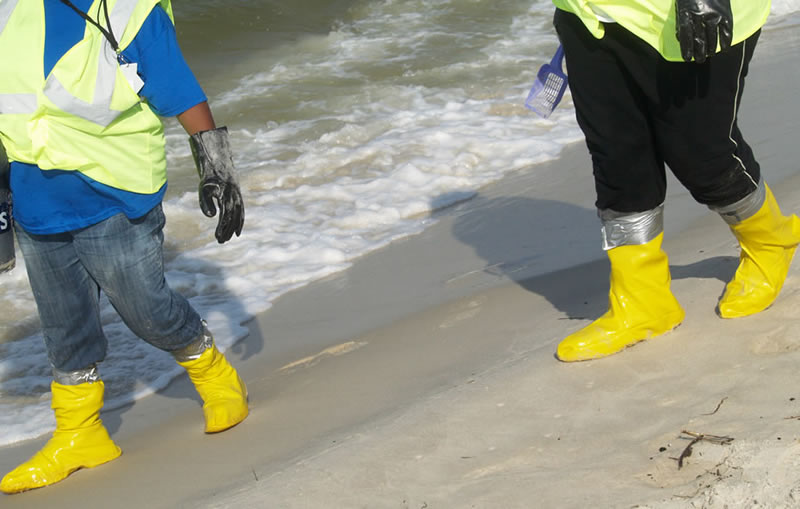By Andy Brack, editor and publisher | South Carolinians can learn something from an Alabama Christian leader who is trying to unite people through what may seem an unlikely issue – the environment.
Dr. Randy Brinson, a Montgomery gastroenterologist who is president of the Christian Coalition of Alabama, is on a mission. He wants to make climate change become a nonpartisan issue that brings people together for solutions, not allow it to continue to be a political ping pong ball manipulated by cynics for their own purposes.
“It is not a partisan issue until people make it a partisan issue,” he said this week. “It can’t be controlled by political donations or politicians alone. It has to involve all of us working together to reduce or mitigate factors that we can control.”
Next weekend on the Alabama coast, Brinson is hosting the first Embrace and Restore Conference. It will be a day-long discussion to help evangelical leaders better understand the reality of changes to climate brought on by man’s interactions with the environment. Among those scheduled to speak are Alabama’s commissioner of agriculture and former U.S. Rep. Bob Inglis, a South Carolina Republican who heads the Energy and Enterprise Initiative to promote free enterprise action on climate change.
 “We are hosting the conference to highlight what aspects of climate change that we can be impactful and proactive in addressing as the body of Christ,” Brinson said. “We also are addressing the Deepwater Horizon disaster and how to keep that from occurring again along with hurricane mitigation and homeowners’ insurance concerns.”
“We are hosting the conference to highlight what aspects of climate change that we can be impactful and proactive in addressing as the body of Christ,” Brinson said. “We also are addressing the Deepwater Horizon disaster and how to keep that from occurring again along with hurricane mitigation and homeowners’ insurance concerns.”
In April 2010, oil spewed for weeks from the Deepwater Horizon well in the Gulf of Mexico and polluted the coast from Texas to Florida. Eight years later, memories of the kerosene scent around Mobile Bay remain as fresh as this spring’s budding flowers.
“The issue of climate change has been so politicized by the political left and right,” Brinson observed. “The uniting theme for evangelical Christians is the impact climate is having on those areas that are being served by missionaries, particularly in sub-Sahara Africa. There is no denying the impact of climate change on the continent causing disease and water shortage and death. We cannot help this region recover without addressing climate change.”
In other words, Brinson sees the connection – a nexus missed by many who ignore or don’t believe in climate change – of man’s impact on the environment in destitute places where American missionaries help. For them to be able to do their work, he says, they need to reduce man’s impacts on climate.
This approach is not unfamiliar territory for Brinson, who gained acclaim in the 2004 election for registering more than 78,000 evangelicals through Redeem the Vote, an evangelical education initiative similar to Rock the Vote for youths.
Listen to how Brinson described man’s interaction with the environment in a 2006 interview:
“We are entrusted to protect it. This in no way implies that we worship the Earth and see it as some kind of pagan deity, as some conservatives would attempt to stereotype those interested in the environment. It is truly our sacred duty to protect the Earth as we utilize the resources that God has provided to us.
“These ideas are not mutually exclusive. Most sportsmen today are professing Christians, yet they support initiatives that protect our natural forests, lakes, streams and waterways so that future generations can enjoy them. We must mitigate the man-made emissions that threaten our environment. Just as we are commanded to treat our bodies as the temple of the Holy Spirit, we must care for the environment and the world around us.”
Brinson’s strategy is different from how many environmentalists use logic and science to push leaders for climate change solutions. But what’s notable is how he offers a way to get to the same place for pragmatic solutions through the parallel path of using Biblical teachings of leaving the earth a better place by reducing environmental impacts and global warming.
This is an important lesson. It uses what many see as a divisive issue in a unifying manner. It’s also something the conservation community in South Carolina should embrace – to join with people who may not approach issues like they do but who want to get to a common goal.
- Learn more about the conference here: https://www.embraceandrestore.org/
- Have a comment? Send to: editor@charlestoncurrents.com




 We Can Do Better, South Carolina!
We Can Do Better, South Carolina!
























